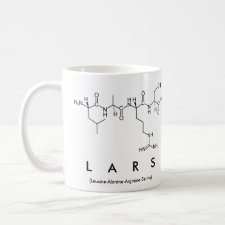
Authors: Abdel-Rehim M, Andersson LI, Altun Z, Blomberg LG
Article Title: Microextraction in Packed Syringe Online with Liquid Chromatography-Tandem Mass Spectrometry: Molecularly Imprinted Polymer as Packing Material for MEPS in Selective Extraction of Ropivacaine from Plasma.
Publication date: 2006
Journal: Journal of Liquid Chromatography & Related Technologies
Volume: 29
Issue: (12)
Page numbers: 1725-1736.
DOI: 10.1080/10826070600716843
Alternative URL: http://www.informaworld.com/10.1080/10826070600716843
Abstract: The excellent performance of a new sample preparation method, microextraction in packed syringe (MEPS), was recently illustrated by online LC-MS and GS-MS assays of local anaesthetics in plasma samples. In the method, approximately 1 mg of solid packing material was inserted into a syringe (100–250 μL) as a plug. Sample preparation took place on the packed bed. The new method was easy to use, fully automated, of low cost, and rapid in comparison with previously used methods. This paper presents the use of molecularly imprinted polymers (MIPs) as packing material for higher extraction selectivity. Development and validation of a method for MIP-MEPS online with LC-MS-MS using ropivacaine in plasma as model compound were investigated. A bupivacaine imprinted polymer was used. The method was validated and the standard curves were evaluated by means of quadratic regression and weighted by inverse of the concentration: 1/x for the calibration range 2–2000 nM. The applied polymer could be used more than 100 times before the syringe was discarded. The extraction recovery was 60%. The results showed high correlation coefficients (R2>0.999) for all runs. The accuracy, given as a percentage deviation from the nominal concentration values, ranged from -6% to 3%. The precision, given as the relative standard deviation, at three different concentrations (QC samples) was consistently about 3% to 10%. The limit of quantification was 2 nM.
Template and target information: ropivacaine
Author keywords: Column liquid chromatography-tandem mass spectrometry, Molecularly imprinted polymers, Microextraction in packed syringe, sample preparation, ropivacaine



Join the Society for Molecular Imprinting

New items RSS feed
Sign-up for e-mail updates:
Choose between receiving an occasional newsletter or more frequent e-mail alerts.
Click here to go to the sign-up page.
Is your name elemental or peptidic? Enter your name and find out by clicking either of the buttons below!
Other products you may like:
 MIPdatabase
MIPdatabase









